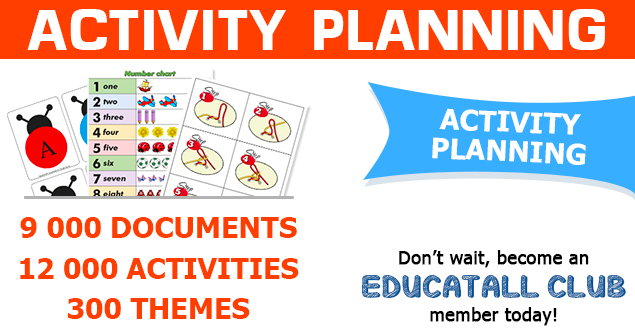
Discipline and interventions with 4 and 5-year-olds
Many particularities are associated with the period right before kindergarten. Like each period of childhood development, children evolve, grow, and change at a rapid pace at this age. Early childhood educators must adapt their discipline methods and interventions accordingly. Although basic discipline methods continue to apply, there are certain developmental characteristics that may influence your interventions.
As they get closer to starting kindergarten, children become more and more autonomous and independent. They are willing to take initiatives. The people skills they were lacking in previous developmental stages become more finely tuned during the preschool years. Children are interested in playing with their peers and their ability to share also shows a great deal of improvement. You will continue to manage a certain amount of conflicts, but there will be fewer than when children were 2 and 3 years old. The emotional development of children this age is also growing, making it easier for them to manage frustration, take initiatives, and tolerate a certain delay when it comes down to their needs being met. Their language skills also make it possible for them to express themselves freely. However, this also explains the increase in verbal aggression.
Of course, they will go through the "ferocious fours". Although this stage is much less documented than the well-known "terrible twos", it is just as important and it will influence your interventions. You will face young negotiators who will test each intervention, consequence, and rule. As previously mentioned, children this age have access to language skills. They will use these skills to argue and negotiate. The "ferocious fours" resemble a small rebellion some like to call "mini adolescence".
Now that you have a global picture of preschool-aged children, here are a few interventions that may help you get through this period.
Give children responsibilities. Beyond having the ability to perform various tasks, children long for responsibilities since they provide them with a sense of power. Completing tasks makes them feel valued. They need to feel like they are "big kids".
Put a STOP to negotiations. Children this age will attempt to negotiate with you. They will argue and try to make you change your mind. They will be protesting specialists. Do not expect children to stop on their own. However, by deciding not to embark in negotiations of any kind and intentionally ignoring all argumentation, they will quickly realize that they will not win and gradually cease arguing about anything and everything.
Give them choices
As previously mentioned, children enjoy having a sense of power. Give them choices and let them make certain decisions as part of your daily routine or specific activities. Give them a certain amount of freedom within a constant discipline framework. Children will feel they are important and be less inclined to negotiate.
The preschool stage is one I really enjoy. Despite the tiny obstacles that can be present in terms of discipline, it represents a relatively enjoyable period. Children become more and more autonomous and they are capable of so much. What's more, this is the stage when we really discover their personality and temperament. Watching them grow is magnificent!
Maude Dubé, Specialized educator

 Home
Home Theme activities
Theme activities
 Babies and toddlers
Babies and toddlers
 Arts and crafts
Arts and crafts
 Science
Science
 Creative recipes
Creative recipes
 Tips and tricks
Tips and tricks
 Special needs
Special needs
 Extra activities
Extra activities
 Educ-TV
Educ-TV
 Newsletter
Newsletter  Online store
Online store Educatall club
Educatall club

